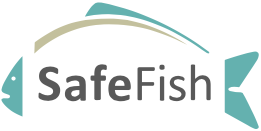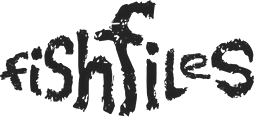Ciguatera poisoning (CP) accounts for the majority of food safety outbreaks related to seafood consumption in Australia, with more than 1,650 cases reported since 1965, including 2 fatalities (a rare occurrence).
Ciguatera poisoning is a foodborne intoxication caused by consumption of ciguatoxins: a group of stable, fat-soluble marine biotoxins that may be found in certain species of fish, mollusc or echinoderm. Precursor toxins to ciguatoxin are produced by dinoflagellate microalgae, such as Gambierdiscus. The toxins are then modified as they move up marine food chains, for example as herbivorous fish are eaten by small carnivorous fish, which are in turn eaten by larger carnivorous fish. In Australia, the larger predatory fish are most often implicated in ciguatera poisoning cases.
SafeFish Involvement
To help better manage the incidence of CP in Australia, SafeFish has initiated a number of different activities and continues to ensure that Australian interests are represented internationally through CODEX. In 2018, SafeFish brought together representatives from industry, government regulatory bodies, research institutions and state health departments to deliver a national research strategy that aims to reduce the incidence of CP in Australia. SafeFish maintains a ciguatera working group, which links Australian researchers with the relevant health, fisheries and food authority contacts to ensure that the latest science is fit for use.
As part of this national research strategy, SafeFish aims to raise awareness of CP among health care professionals, as well as recreational fishers. This includes the provision of fact sheets, answers to frequently asked questions, as well as surveys of recreational fishers to not only gauge awareness levels, but also raise awareness in the process. Through these projects, SafeFish not only connects national experts, but also works closely with our colleagues overseas at the Institute Louis Malardé in French Polynesia and Cawthron Institute in New Zealand.
SafeFish also maintains a watching brief on international developments in the field, particularly in the CODEX arena. For example, SafeFish organised the Australian response to a combined request by the Food and Agricultural Organisation (FAO) and World Health Organisation (WHO) to collate all available Australian data on ciguatera for risk assessment purposes. This ensures that any international developments reflect Australian conditions. SafeFish also continues to represent Australian interests at CODEX, providing travel funding for select Australian delegates to attend overseas committee meetings and help represent the interests of the Australian seafood communities. Currently, SafeFish researchers and colleagues are heavily involved in facilitating the Australian response to an international draft Code of Practice being developed by the FAO for the management of ciguatera. At the same time, SafeFish’s efforts to raise awareness of CP in Australia continue.




